New intervention to protect lungs during cardiac surgery, feasible, safe, and effective, study finds
Press release issued: 26 September 2024
 A new intervention which keeps lungs regularly expanding when using a heart-lung machine during heart valve surgery might protect lung function and exercise capacity in adult patients after the operation, a University of Bristol-led clinical trial has found.
A new intervention which keeps lungs regularly expanding when using a heart-lung machine during heart valve surgery might protect lung function and exercise capacity in adult patients after the operation, a University of Bristol-led clinical trial has found.
Raimondo Ascione, Professor of Cardiac Surgery and Translational Research and Director of TBRC at Bristol Medical School: Translational Health Sciences (THS), NHS Consultant Cardiac Surgeon, Chief Investigator and senior author on the paper, said: “Our randomised clinical phase II trial has found using low frequency ventilation (LFV) during heart-lung machine in the targeted heart valve surgery patients is viable, safe and effective”.
Read the full story
Professor Caputo wins BHF Research Story of the Year for work on children’s heart plaster
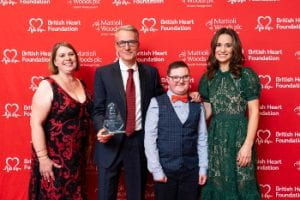
Massimo Caputo, BHF Professor of Congenital Heart Surgery and Consultant in Cardiothoracic Surgery at the Bristol Heart Institute, received his award at a ceremony in London last night, Wednesday 6 December. The BHF’s Heart Hero Awards recognise people who have gone the extra mile to help those with a heart and circulatory disease. Read the full story Watch the award ceremony
Professor Caputo said: “My team and I are delighted to win the BHF Research Story of the Year. It’s an amazing recognition of all the work we have done to get to this point, and I want to thank BHF for their continued support.
Calum Morris, pictured above, was born with Truncus Arteriosis. Calum received lifesaving open heart surgery from Professor Caputo when he was just ten days old. Since then, Calum has had a further four major heart surgeries – all performed by Professor Caputo and his team.
Now 17, Calum and his family wanted to say thank-you to ‘their hero’. The family say thanks to Professor Caputo and his incredible team Calum has been able to achieve dreams that other boys take for granted like playing football.
Celebrity guests Pippa Middleton who gave the award, helped to recognise the inspirational contributions of the BHF’s supporters.
Photo credit: Danny Fitzpatrick / DFphotography.co.uk | Picture date: 06/12/23
Heart plaster to stop children needing repeated heart surgeries
 Researchers funded by the BHF at the University of Bristol have developed a new revolutionary type of ‘heart plaster’ that could improve the way surgeons treat children living with congenital heart disease, so they don’t need as many open-heart operations.
Researchers funded by the BHF at the University of Bristol have developed a new revolutionary type of ‘heart plaster’ that could improve the way surgeons treat children living with congenital heart disease, so they don’t need as many open-heart operations.
Congratulations to our translational cardiovascular students
Graduation took place on 31 July 2023 at the Wills Memorial Building. The ceremony was opened by the Deputy Vice-Chancellor and Provost, Professor Judith Squires.
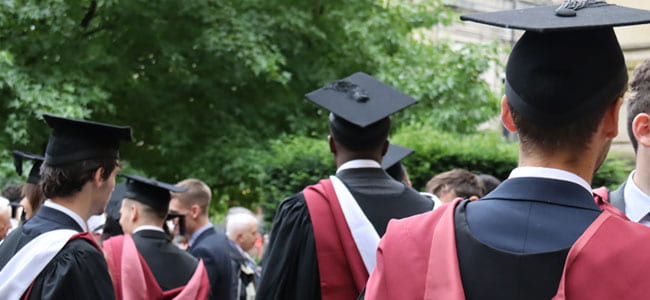
Vote for your favourite BHF-funded research
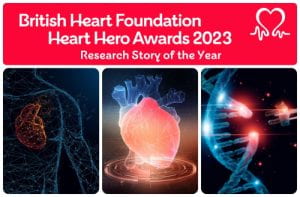
Thank you for taking time to vote for the British Heart Foundation (BHF) Media Award 2023 – Research Story of the Year. It should take no longer than 15 minutes to complete. The following three BHF-funded research projects aim to tackle some of the biggest challenges into heart and circulatory disease. As part of the BHF Heart Hero Awards 2023, we invite you to explore all three projects and choose which ONE inspires you the most.
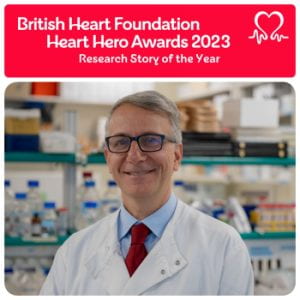 The top voted project will be announced as this year’s BHF Media Award 2023 – Research Story of the Year at the Heart Hero Awards in December. Please read the details and watch the short videos of each research project and select your winner.
The top voted project will be announced as this year’s BHF Media Award 2023 – Research Story of the Year at the Heart Hero Awards in December. Please read the details and watch the short videos of each research project and select your winner.
We invite you to explore three shortlisted BHF-funded research projects and vote for your favourite.
Watch the videos Cast your vote Voting closes on 20th August 2023.
Professor Caputo and his team at the University of Bristol have developed a new revolutionary type of ‘heart plaster’ to treat children with congenital heart disease. The plaster is designed to adapt to the child’s heart as it grows, so they don’t need as many open-heart surgeries.
A selection of the work of Professor Massimo Caputo can be seen here in the following news articles:
- https://soundcloud.com/voislam/breakfast-show-podcast-04-01-2023-teachers-strikes-umbilical-stem-cells-used-to-save-babys-life
- https://news.in-dies.info/2022/12/28/eseguito-il-primo-trapianto-di-cellule-staminali-in-un-neonato/
- https://www.bristol.ac.uk/news/2022/december/stem-cell-plasters.html
- https://www.thetimes.co.uk/article/world-first-surgery-saved-baby-boy-with-failing-heart-p7c8crr97
- https://www.bbc.co.uk/news/uk-england-bristol-63946248
- Trinidad Sunday Express; Straight from the Heart: Teen gets life-saving surgery. (https://trinidadexpress.com/news/local/straight-from-the-heart/article_e0ebacb2-6890-11ed-b4ed-e795a7b83141.html)
NIHR Accelerator Award for UK first platform trial in cardiac surgery
Dr Maria Pufulete and Associate Professor Ben Gibbison have been given an NIHR Accelerator Award to set up a platform trial in cardiac surgery. Platform trials are designed to test multiple treatments against a common control group. Treatments that do not work are quickly removed and new ones added. As we can test multiple interventions at once, we can get to the answers faster – this means that we can get these answers for patients more rapidly.
This is the first platform trial to be set up in cardiac surgery in the UK. The trial will be run through the Bristol Trials Centre but will involve collaborators from cardiac surgery centres across the country and trial methodologists who have experience in running platform studies in cancer and Covid-19. It is supported by the Society of Cardiothoracic Surgeons, The Association for Cardiothoracic Anaesthesia and Critical Care and the National Cardiac Surgery Clinical Trials Initiative and the Heart Surgery Priority Setting Partnership National Patient and Public Involvement (PPI) group.
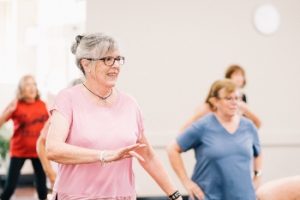 The study will initially look at interventions that prevent atrial fibrillation after heart surgery. Atrial fibrillation is an abnormal rhythm of the heart that affects about 30-50% of people after heart surgery.
The study will initially look at interventions that prevent atrial fibrillation after heart surgery. Atrial fibrillation is an abnormal rhythm of the heart that affects about 30-50% of people after heart surgery.
People who have AF after heart surgery stay in hospital longer and have a higher risk of having complications, such as a stroke. The aim is that in the future, we can use the platform to trial anything that we think might improve outcomes for patients having heart surgery.
8 March 2023

